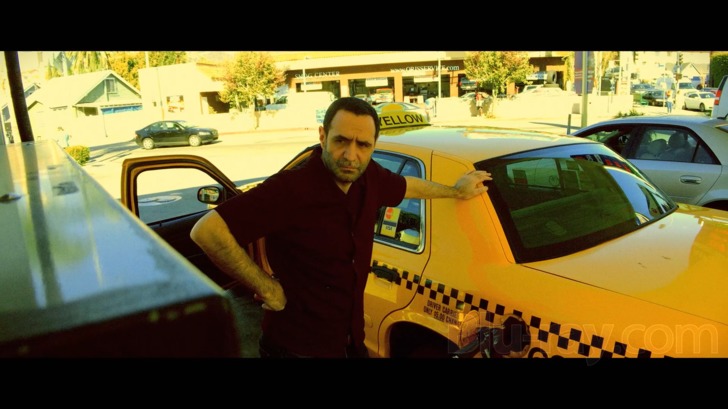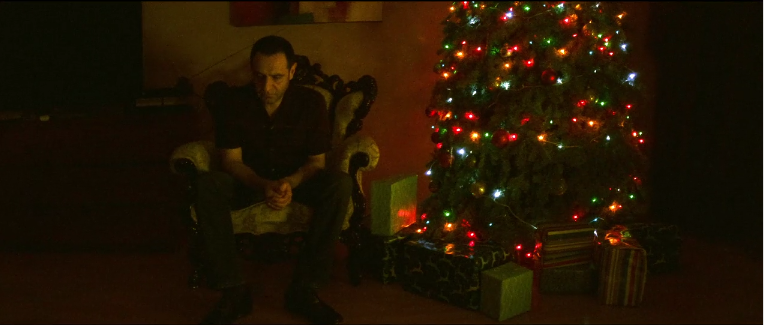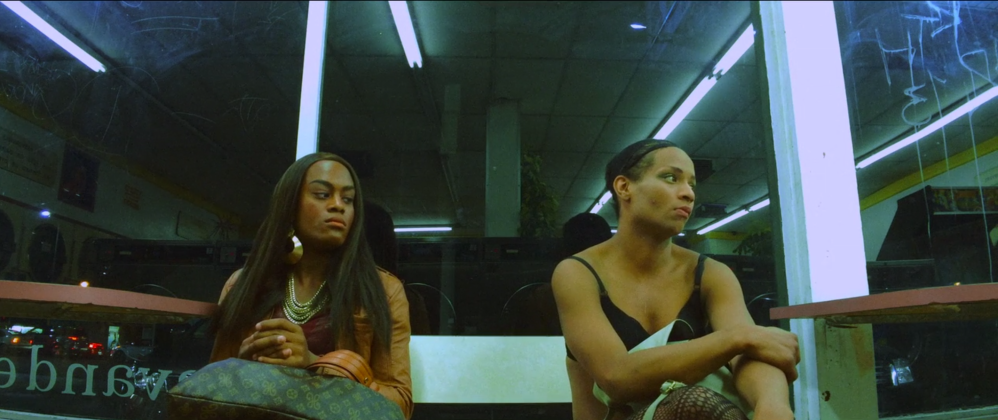
Rockin’ a “Tan(gerine)”
“Merry fucking Christmas.”
Christmas movies are one of those things that are overabundant with so little actual demand for them. But director Sean Baker made a great one, and he made it using iPhones.
It is impressive that someone managed to make a feature-length movie using a pocket device originally intended for people to make phone calls with, and it makes for a great minimalist movie that drags the viewer into a world they might not be particularly familiar with.
The film follows Sin-Dee (Kitana Kiki Rodriguez) and Alexandra (Mya Taylor), a pair of trans prostitutes, throughout their day on Christmas Eve in Los Angeles (though lacking snow or any sign of winter, it doesn’t feel much like Christmas). Sin-Dee has heard a rumor that her boyfriend, Chester, (also her pimp) cheated on her while she was in prison, and she is not having any of it, so she decides it’s time to find the alleged cheater and set him straight. And with that, the journey begins.
The movie makes for a great contrast to any other Christmas movie, as Christmas here feels more like an incidental setting, while the pair of women, dressed in crop-tops and skirts, make their way around the grimy shadow of Hollywood. If you thought that a woman looking for her cheating boyfriend would make for a pretty thin plot, you’d be surprised to see how much mileage Baker manages to get out of it. It’s a tale filled with humor and insight, and a roller-coaster of emotions.
Much of the humor is provided by the bright, charismatic performance from Rodriguez, which should have catapulted her to stardom (maybe if Hollywood and the general public were more openly accepting of trans people). Taylor’s more subdued performance provides balance as the emotional, sympathetic center of the film. They make for quite the dynamic duo.

You don’t want to piss off Sin-Dee.
The movie also follows Armenian immigrant taxi driver Razmik (Karren Karagulian), as he tries to navigate his own day, while transporting passengers — some polite, some impolitely puking — and maintain his own sanity while doing it. He also has a thing for the ladies. Specifically, he likes to pick up trans prostitutes between fares. He even gets upset when he mistakenly picks up a cis woman and discovers a pussy where he’d expected to find a penis. He’s apparently a regular customer of Alexandra’s, and they even get a sweet moment together (as far as sex workers and clients may have anyway) that feels like a godsend after a rough day at the office for the both of them. You’ll never look at an automated car wash the same way. That’s as close as this movie gets to having romance in the Christmas air.
Razmik and the ladies serve as an interesting contrast to each other, coming from different cultures that are each repressive in their own ways. Razmik works to support his wife and child and her family, all of whom are immigrants. Armenia’s national religion is a conservative form of Christianity, which makes for a culture rather unaccepting of non-heterosexual relationships and anything outside of binary gender norms. The fact that he’s soliciting prostitutes on the regular makes him a cheater, but he’s not entirely unsympathetic either, considering his background and his family situation.

Razmik is in for a rough day.
Though transphobia is entirely present and dangerous to trans people in U.S. culture, it’s refreshing that, for the most part, the movie doesn’t treat its characters’ identities as a tragedy or a hardship that they need to overcome, but rather simply allows them to be people trying to get by. Certainly, there is room for entertainment to address the difficult issues surrounding non-cisgender identities, but it’s nice to just be able to see the characters as people rather than them being reduced to social issues, as is often the case in movies about race or LGBT issues.
Yet, especially in the U.S., LGBT people and immigrants (especially immigrants from Western Asia), find themselves in a similar — though not identical — dangerous situation. It’s easy to understand how there could be solidarity between people of two groups that find a lack of acceptance in the U.S.
At the same time, the film emphasizes the importance of identity for people groups that are disenfranchised. At one point, several members of Razmik’s family discover his “unacceptable” activities, and his wife rationalizes it away, admitting that sometimes a wife has to turn a blind eye, for the sake of the family, though it’s obvious she isn’t particularly happy about discovering Razmik’s secret.
Sin-Dee eventually tracks down Dinah (Mickey O’Hagan), the woman Chester has purportedly been cheating on her with. After dragging her all through town (it’s an impressively extensive dragging), Sin-Dee finally collects herself and manages to have a sit-down conversation with Dinah. Dinah reminds her (tauntingly) that Chester is a pimp, and does she really think she could ever be his “one and only”? It makes the whole episode seem pretty foolish, and you wonder why Sin-Dee took out her anger on Dinah, rather than Chester himself, as he’s the cheater.
If it isn’t obvious by now, cheating is a common theme throughout the movie too, which is interesting to look at as it relates to identity. People have different feelings about cheating, and different people have different tolerances (or lack thereof) toward that aspect of committed relationships. Obviously, nobody sees cheating as an attractive trait in a partner, but as Razmik’s wife puts it, sometimes you have your reasons for putting up with things. And it’s an offense that can be forgivable, for some. This is not meant to condone cheating, so much as it is to say that cheating is a bit of a gray area that means different things to different people, and humans are prone to making mistakes.
And gray areas can be used to explore how to deal with less gray issues. The #MeToo movement involving powerful people in Hollywood and the government, especially implicating some high-profile, very popular people, does bring up questions about how to deal with them. One thing people are pondering is whether the good a person does can outweigh the bad, and vice versa, and in what light should the good a person does be viewed if the bad they do is particularly egregious, like sexual assault or rape? That’s the way it is for all relationships really. You consider these things in the people you choose to spend your time with, and you have to figure out how much bad you are willing to put up with in order to enjoy the good. But some people have done a lot more bad than others, and some of those bad people have a much higher profile.
For people in disenfranchised groups, this is a challenging issue to work with too. Even if someone in your group does something wrong, there’s a question of how much the group is willing to put up with and still celebrate a person as one of their own. For LGBT people and immigrants, there has to be solidarity among one’s own group, and sometimes it becomes tempting to accept “bad” behavior from a member of that group for the sake of solidarity. The characters in the movie get over being hurt by someone they love because in the end, they need that solidarity, for better or for worse.
In the real world, life comes at you fast with popular people committing sexual violence. One week, Aziz Ansari is the first Asian person to win a Golden Globe. The next, he’s accused of sexual assault. George Takei, a prominent Asian-American actor and personality, who has helped shine a light on Japanese internment camps in the US during WWII and was a champion for LGBT issues, is accused of drugging and likely raping a man. It makes sense to scrub them from the public eye because they are harmful people, and there are and will be other Asians to admire in entertainment. But when it’s someone you identify with taking the plunge, it hurts a little more because you know they are taking your group’s representation down with them.
On the flip side, people with bad intentions often use that sympathy and solidarity as a ploy to gain good will and appear to actually be “one of the good guys,” manipulating the public at their whim. You could say it’s a complicated time to be alive for people who aren’t white, straight men, but truthfully, it’s always been complicated and difficult. The internet and 24-hour news cycle just make it feel like a lot more is happening now than in the past.
It’s cool to see a film that kind of deals with serious subject matter, but is also hilarious. The characters immediately feel like they are going off the rails, and the blasting soundtrack only serves to heighten that feeling. The characters are all so angry and determined that their interactions are incredibly heated and dismissive, which makes for good entertainment.

Trying really hard to make it feel like Christmas in LA.
Though much of the humor comes from being so “in your face,” Baker also has a knack for finding humor in smaller details. The chintzy Christmas decorations littered throughout the city, combined with an atmosphere that feels more like summer, and the rather sordid subject matter create such a wonderful disconnect that the whole affair seems so absurd. And then there are other things, like the cheap spinning shiny lights that decorate a bar restroom as Sin-Dee redoes Dinah’s makeup for her after treating her so roughly over the course of the day. It dials down their epic squabble and also makes for a sweet bonding moment between the two prostitutes. The director is masterful at instilling beautifully complex feelings in the viewer, which makes for a thoughtful watch about serious things without being grim. It all makes for a gleefully anti-Christmas Christmas movie.
With the film’s subject matter, the iPhone thing is more than just a gimmick. It gives the movie a lived-in quality, and it feels like the audience is listening in on the conversations the characters are having and experiencing the situations they find themselves in. The “camerawork” and the excellent acting make everything feel very natural.
And, of course, it’s great to see trans people playing trans characters. In big Hollywood movies and TV, it’s become commonplace for cisgender actors to portray trans characters of the opposite gender, which is a trend that serves to take jobs away from trans actors in an already small market. It’s good to see a movie utilize people who can convey their own life experiences onscreen. It hasn’t felt as if there has been any shift in Hollywood at all since this movie’s release in 2015, but hopefully that will soon change.
“Tangerine” is an excellent film that showcases the apparent power of the iPhone camera. But, it’s the work of Baker and the tremendous actors that should easily win over the heart of any viewer. And in a genre that’s filled with lumps of coal, this is a Christmas movie that’s truly a gift from the people who made it.

Sometimes solidarity is all you have left, and sometimes it’s enough to save things.